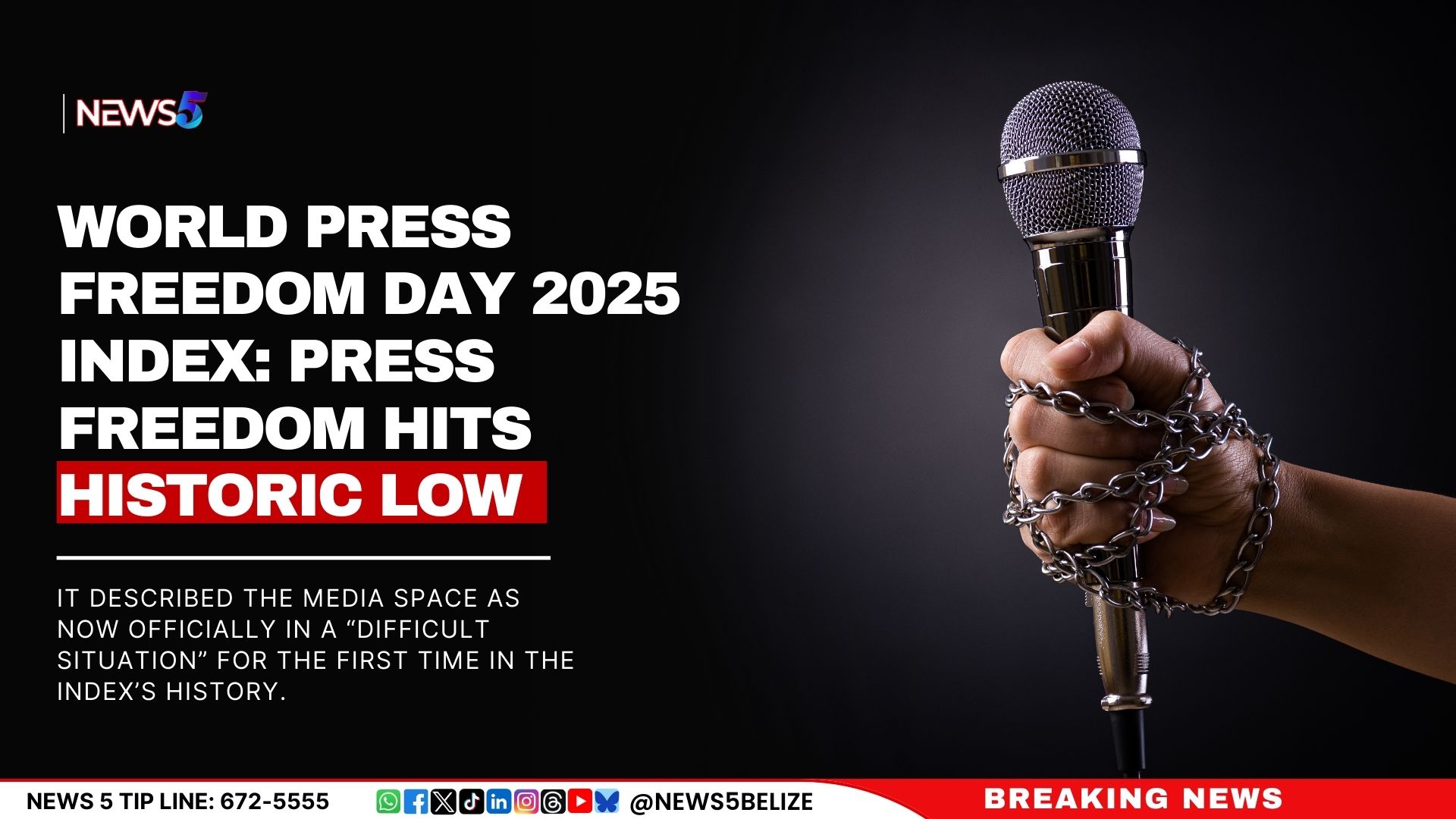Global press freedom has reached its lowest point on record, a historical all-time low, according to the 2025 World Press Freedom Index released by Reporters Without Borders (RSF). It described the media space as now officially in a “difficult situation” for the first time in the Index’s history. The Index shows that journalism is collapsing under financial strain, political interference, and the unchecked power of tech giants.
Each year on 3 May, World Press Freedom Day reflects the importance of a free press as the cornerstone of democracy, accountability, and informed public debate. However, economic fragility, not just violence or repression, is now the most dangerous threat to journalism worldwide. While journalists in the region may not regularly face imprisonment or death, they face intimidation, censorship, and online abuse that steadily undermine the integrity and independence of the press.
Economic Fragility Undermines Media Independence
At the heart of this year’s report is an alarming decline in the financial stability of media outlets. According to RSF, media outlets in 160 of the 180 countries surveyed are either struggling to remain financially viable or unable to do so at all. Advertising monopolies by tech giants, opaque public subsidies, and growing ownership concentration are suffocating editorial independence and undermining journalistic integrity. RSF warns that without strong, transparent economic frameworks, the press cannot remain free, credible, or resistant to political and commercial influence.
A Shrinking Map of Media Freedom
The global map of press freedom is turning redder, with 42 countries now rated “very serious,” including Palestine, China, Eritrea, and North Korea. In Palestine, journalism is under siege amid military bombardment and information blackouts, with nearly 200 journalists killed. East Africa saw Uganda, Ethiopia, and Rwanda slip into the red zone, while Hong Kong joined China in the bottom tier for the first time.
In the Caribbean, press freedom is facing mounting pressures. Haiti (93rd) has seen a sharp decline amid deepening political and economic turmoil. Journalists face gang violence, kidnappings, and impunity for attacks, with the fall of Ariel Henry’s government in 2024 worsening the situation. Jamaica, while still the region’s highest-ranked at 32nd, fell 20 places.
The Organisation of Eastern Caribbean States (OECS) dropped to 93rd from 55th, as political influence over editorial content grows.
Meanwhile, Belize has climbed to 47th in the 2025 Index, which reflects an improvement from its 54th position the previous year, according to RSF.
Journalists in the region often endure poor training, low pay, and lack of institutional support, conditions that especially drive women out of the profession, RSF reported. It added that though press freedom remains largely respected, there are physical attacks on journalists and the rise of online threats.
Argentina has fallen to 87th as President Javier Milei dismantles public media, while journalists in Peru, ranked 130th, and El Salvador, at 135th, are facing growing hostility. Mexico, now 124th, remains the most dangerous country in the region for reporters. Brazil, ranked 63rd, is showing signs of democratic recovery following the Bolsonaro era. While Nicaragua places at the bottom as the 172nd, it has all but eliminated its independent press.
Even in nations historically considered press-friendly, such as South Africa and New Zealand, the situation is worsening. The United States, ranked 57th, is collapsing into “news deserts,” and Trump’s second term has ushered in funding cuts that crippled global media initiatives.
Europe Holds the Line—But Is Starting to Slip
Europe continues to lead globally, with Norway, Estonia, and the Netherlands topping the Index. However, RSF pointed out that even here, cracks are forming. Seven in ten European Union (EU)-Balkans countries experienced economic setbacks, and the much-anticipated European Media Freedom Act remains unimplemented. The gap between democratic strongholds and authoritarian regimes is widening, but even democracies are far from immune to the mounting economic and political pressures facing the free press.
RSF’s Index warns that without urgent and coordinated action to protect journalism’s financial independence, the light of press freedom is threatened to flicker out.
